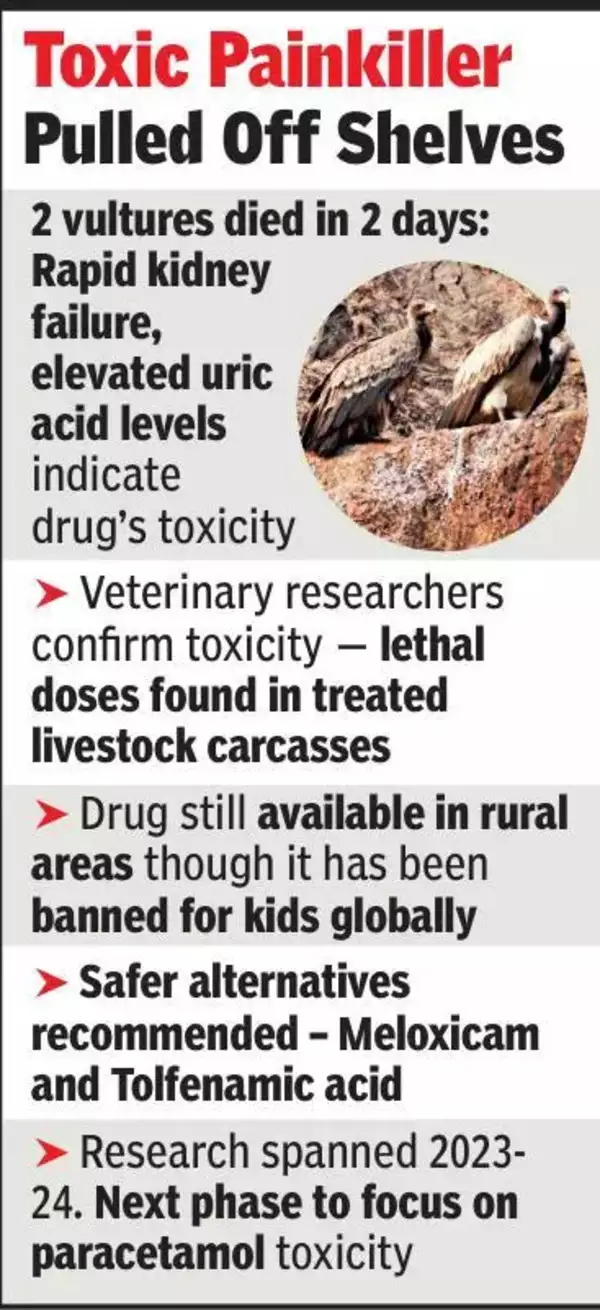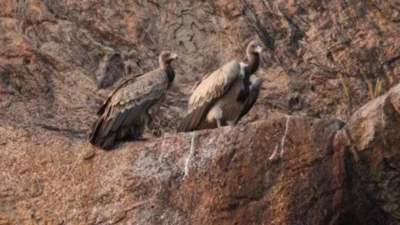Bareilly: The Centre has banned the manufacture, sale, and distribution of all formulations of Nimesulide — widely used as a painkiller for animals — after studies conducted by scientists at the Indian Veterinary Research Institute (IVRI) at Izatnagar, Bareilly, confirmed its toxicity to vultures. The decision was based on controlled experiments in Haryana, where two Himalayan griffon vultures — Gyps himalayensis — were exposed to doses of Nimesulide comparable to those found in the carcasses of treated livestock.
In the experiment, two vultures were given Nimesulide, while two others were treated with saline as controls. The treated birds exhibited elevated uric acid levels, a well-documented indicator of kidney failure, and both died within two days of receiving the drug. “This rapid effect is consistent with poisoning caused by other non-steroidal anti-inflammatory drugs (NSAIDs) like diclofenac and ketoprofen,” a researcher involved in the study said.
Dr Abhijeet Pawde, who led the research during 2023-24, highlighted the significance of the findings. “It’s time such toxic drugs were banned so that these species can be saved from extinction. Our research demonstrated that Nimesulide is highly lethal to vultures when they consume carcasses containing the drug,” he said.

The department of health and family welfare’s Central Drugs Standard Control Organisation (CDSCO) enforced the ban under the Drugs and Cosmetics Act, 1940, on Monday through a gazette notification. However, reports suggest that the drug continues to be available in rural areas, raising concerns about enforcement challenges. Veterinary experts have repeatedly called for stricter monitoring to ensure compliance with such bans.
Nimesulide has been widely used as a painkiller for animals, including cattle, pigs, and horses. While formulations differ for human and animal use, Nimesulide has already been banned for children in many countries due to safety concerns. “Animal-use formulations may have impurities that human drugs do not, making them potentially more dangerous,” Pawde added.
Experts have recommended safer alternatives, such as meloxicam and tolfenamic acid, which are both effective and affordable. “When safer options are available, it is entirely reasonable to replace highly toxic drugs like Nimesulide,” said Dr M Karikalan, another researcher involved in the project.
Further studies on the toxicity of other drugs, including paracetamol, are planned as part of the next phase of the research. This initiative aims to safeguard vultures and other scavenger species vital to maintaining the ecosystem’s balance.




